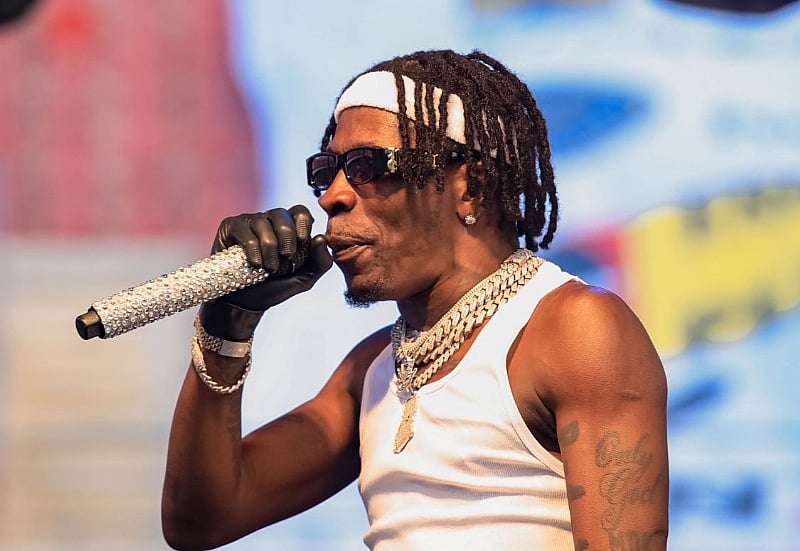Shatta Wale’s endorsement of the John Mahama-led administration underscores a significant intersection of entertainment and politics in Ghana. His call to the youth to rally behind the government stems from the administration’s stated commitment to youth empowerment and economic improvement, symbolized by the promise to put “money in their pockets.” This direct appeal to the youth’s economic aspirations resonates with the challenges faced by many young Ghanaians seeking better opportunities and financial stability. Shatta Wale’s influence as a prominent dancehall artist amplifies the message, potentially swaying a demographic known for its significant electoral power. This public endorsement could be interpreted as both a strategic move by the government to garner youth support and a genuine belief by Shatta Wale in the administration’s potential to deliver on its promises.
The context of Shatta Wale’s endorsement, delivered during a performance preceding a major football match between Asante Kotoko and Accra Hearts of Oak, strategically leverages a platform with immense national reach. The Accra Sports Stadium, filled with passionate football fans, provided a captive audience for his political message. This setting transcends the typical political rally, reaching individuals who might not otherwise engage with political discourse. By aligning his message with a popular sporting event, Shatta Wale effectively bypasses traditional political channels, ensuring his endorsement reaches a wider and more diverse audience, including those who might not typically follow political news or attend rallies.
The interaction between Shatta Wale and President Mahama, highlighted by the President singing along to the artist’s hit track “Mahama Paper,” adds another layer to the narrative. This public display of camaraderie and shared enjoyment of the music strengthens the connection between the artist and the administration, suggesting a mutual respect and perhaps even a personal relationship. Shatta Wale’s subsequent social media post describing President Mahama as someone who rewards hard work but also demands results reinforces the message of accountability and performance-based governance. This portrayal aims to present President Mahama as both approachable and results-oriented, a leader who appreciates talent but also expects delivery on promises.
The government’s introduction of the 24-hour economy initiative further contextualizes Shatta Wale’s endorsement. This policy, aimed at increasing productivity, job creation, and continuous economic activity, provides a tangible example of the administration’s commitment to economic growth. The 24-hour economy concept promises to create opportunities for businesses and individuals, particularly within the informal sector where many young Ghanaians operate. By linking this initiative to the promise of putting “money in their pockets,” the government seeks to demonstrate a concrete pathway towards improved livelihoods for the youth. This policy provides a substantive backdrop to Shatta Wale’s endorsement, giving weight to his claims about the government’s potential to deliver economic benefits.
Shatta Wale’s endorsement raises important questions about the role of celebrities in political discourse. While his influence can potentially mobilize significant support for the Mahama administration, it also raises concerns about the potential for undue influence and the blurring of lines between entertainment and political messaging. Critics might argue that celebrity endorsements can oversimplify complex political issues and prioritize personality over policy. Furthermore, the financial implications of such endorsements, if any, should be transparent to maintain public trust. It is crucial to critically assess the motivations behind celebrity endorsements and consider their potential impact on the political landscape.
Ultimately, the effectiveness of Shatta Wale’s endorsement will depend on whether the Mahama administration delivers on its promises of youth empowerment and economic improvement. The youth, the target audience of this message, will ultimately judge the government based on tangible results, not just endorsements from popular figures. The 24-hour economy initiative and other policy implementations will be closely scrutinized to determine if they indeed translate into increased opportunities and improved livelihoods for young Ghanaians. The success or failure of these policies will likely have a significant impact on the government’s standing with the youth and could influence future electoral outcomes.


